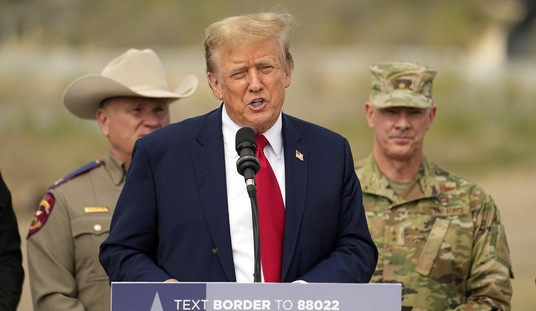In the wake of the Mueller Report being submitted to the Department of Justice, there will be serious introspection across the United States about its impact on the Trump administration, the 2020 presidential election, and the office of President in general. One thing for certain though is that during the two-year investigation and associated media attention and political posturing, the relationship between the United States and Russia has sunk to its lowest point since the Cold War.
It should be remembered that we are not even a decade from Hillary Clinton’s “Russian Reset” button with Foreign Minister Sergei Lavrov, the New START Treaty, and President Obama telling a Russia-skeptical Romney that the “1980s are calling to ask for their foreign policy back”.
Now, many Washington policymakers are racing to see who can paint Vladimir Putin’s Russia as a greater existential threat to the United States and civilization at large.
The politically-driven acrimony toward Moscow has created animosity and suspicion between the two nuclear-armed countries which possess 90 percent of the world’s nuclear weapons. That is short-sighted and needlessly risky. Regardless of opinion about their authoritarian government and its geopolitical priorities, it better suits U.S. national security not to maintain an antagonistic relationship with Russia. We must find a way to co-exist—nobody wins a nuclear war, as we understood during the Cold War.
If political grievances can be set aside, Congress can make a positive impact by putting our foreign policy towards Russia on a realistic and pragmatic track.
Winston Churchill famously described his posture toward Russia by saying, “Russia is a riddle wrapped in a mystery inside an enigma, but perhaps there is a key. That key is Russian national interest.” His commentary on the subject is well worth reading today, as the detailing of Russia’s historic interests and fears are still very relevant.
Recommended
Gaining a better understanding of Russian interests and realizing a more pragmatic approach to our relationship can begin with Congress’s constitutionally delegated powers to offer advice and consent on treaties and regulate commerce with foreign nations.
Committee hearings on Capitol Hill are more often making headlines for political sparing than for substantial work, but historically they can be influential and decisive toward the outcome of our foreign and military policies. The Church Committee of the 1970s ushered in significant reforms to the U.S. spy services that have defined the intelligence community through the end of the Cold War and into the war on terrorism.
In the 1980s, the Armed Services Committees under Sen. Barry Goldwater and Rep. Bill Nichols held extensive hearings on the structure and organization of the military services, culminating in the Goldwater-Nichols Department of Defense Reorganization Act of 1986. Goldwater-Nichols remains the most significant reorganization of the U.S. military since the end of World War II, and its core tenants have underpinned defense policy and posture for more than three decades.
Hearings in the respective national security committees of the House and Senate focusing on Russian foreign interests, military and intelligence capabilities, and the U.S.-Russian relationship could help bring clarity to issues that have been compromised by hyper-politicization over the past two years. Leaders on both sides of the aisle have been guilty of threat inflation and mischaracterization about Russian interests as they seek political points, which negatively impacts overall policymaking.
One area where Congress could be particularly diligent in examining is further expansion of the NATO alliance. It is no secret Moscow has felt threatened by NATO’s expansion into former Soviet Bloc countries, and the Russians have become more belligerent in their opposition as the alliance gets closer to their borders. This wouldn’t be a surprise to Churchill, who 80 years ago identified encroachment from Western Europe as contrary to the historic interest of Russia.
But for some U.S. leaders, it seems this reaction from the Kremlin is the sole justification for adding members to the alliance; not the economic and security needs of the United States or other alliance members. There is no discernible benefit to the United States of having countries with militaries smaller than the police departments of large cities join us in a military alliance where we’re literally risking American lives, but one of the prominent arguments in support of NATO expansion has been the predictable opposition it provokes from Russia.
Such misguided arguments could be challenged by congressional work that seeks truth and clarity; work which would not be possible with today’s toxic environment. But if cooler heads can now prevail on Capitol Hill, significant progress could be made in refocusing our Russian strategy toward policies that are more beneficial to our national interests—the most important reason to improve the U.S.-Russia relationship is to avoid nuclear war, after all.

























Join the conversation as a VIP Member